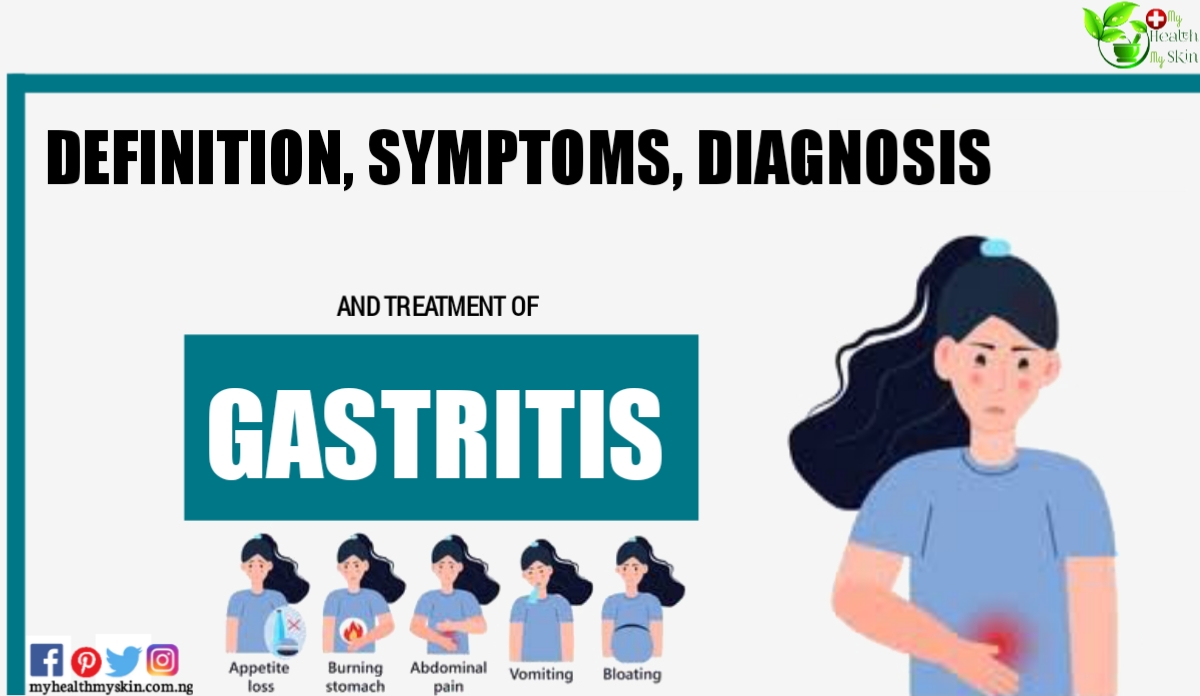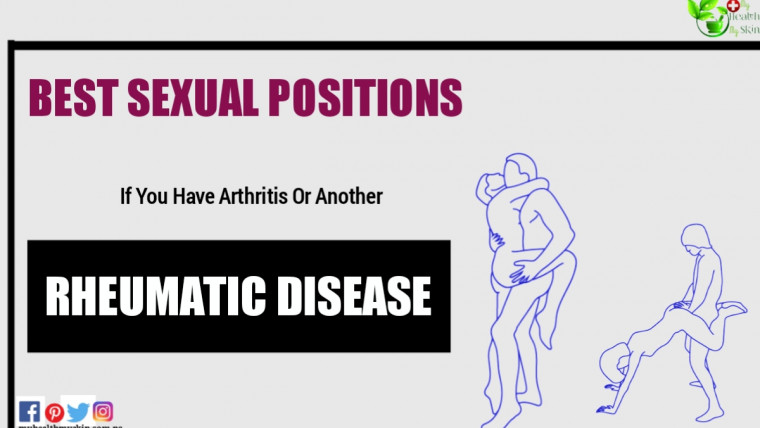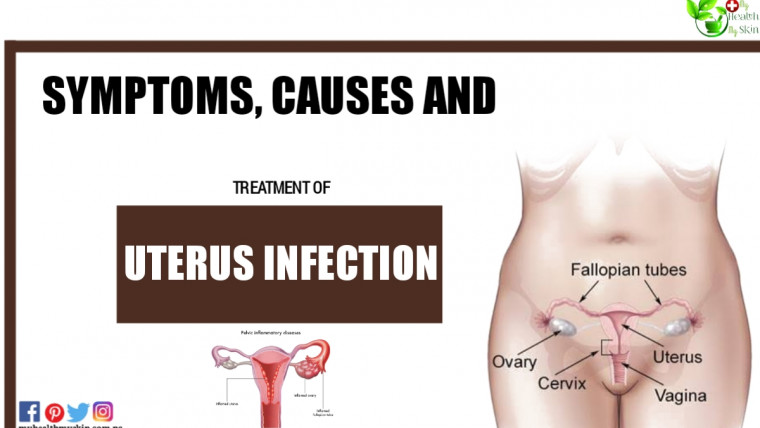Gastritis is defined as inflammation of the stomach lining, which can have different origins.
The clinical manifestations are painful and digestive, often sufficient to establish a medical diagnosis. To see more post on physical and mental health click here.
Treatment depends on the cause of the inflammation and involves reducing stomach acidity and stopping possible infection.
Definitions And Symptoms Of Gastritis
What Is Gastritis?
Gastritis is an inflammation of the stomach lining, the lining that lines the stomach, related to an accumulation of different types of white blood cells in an area of the stomach or in the entire stomach.
Specialists distinguish two types of gastritis, depending on the duration of the inflammation:
- Gastritis, acute, short-lived;
- Chronic gastritis, when the inflammation persists over time.
At the same time, gastritis can be subdivided into two categories depending on its severity:
- Erosive gastritis is the most severe form of gastritis, as it combines inflammation and erosions of the gastric mucosa;
- Non-erosive gastritis is a group of different changes in the gastric mucosa: thinning (atrophy) or transformation into another type of intestinal tissue (metaplasia).
Please know ! The term gastritis can be used incorrectly to describe epigastric pain, that is, pain in the upper region of the abdomen.
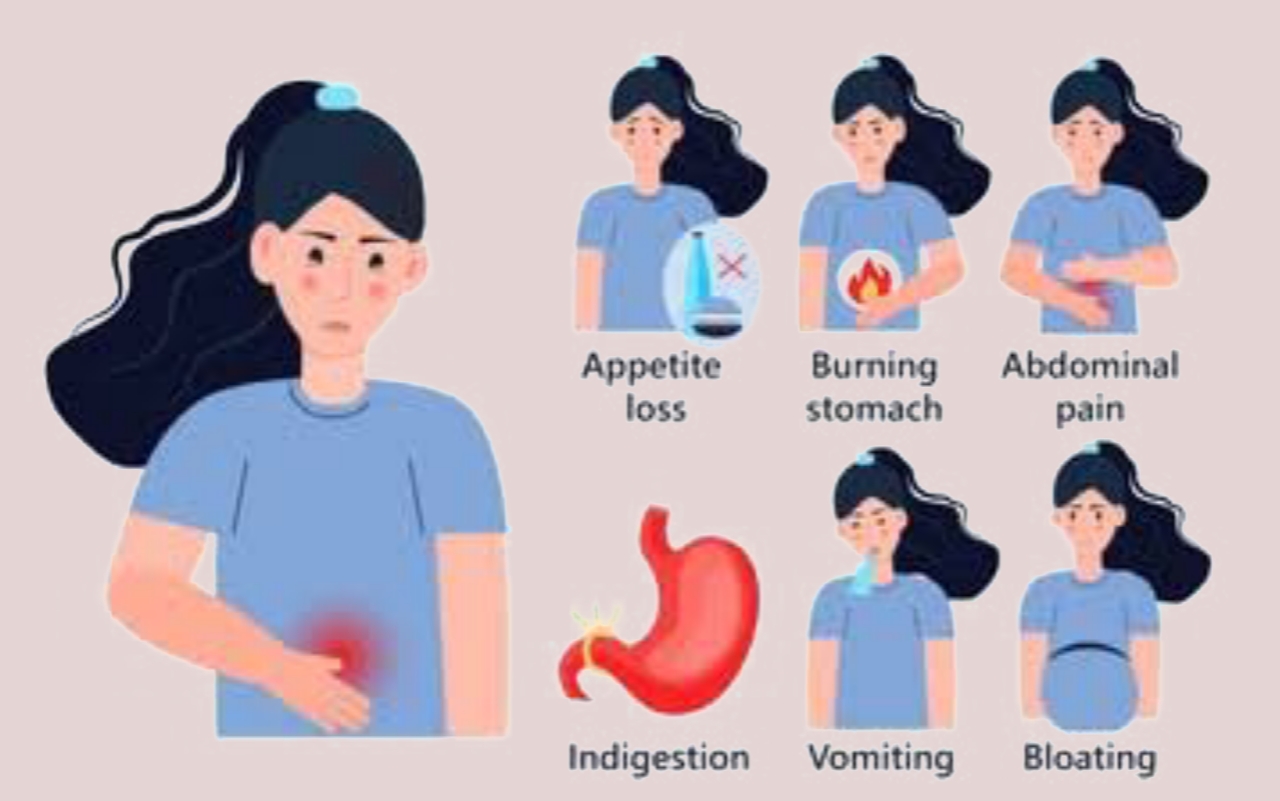
Gastritis refers to inflammation of the gastric mucosa, which is not always associated with specific clinical signs.
Gastritis should therefore not be confused with gastroesophageal reflux disease, gastric ulcer or dyspepsia (pain or discomfort in the upper abdomen region).
There are different causes of acute and chronic gastritis:
- Infections, the main one being infection with the bacterium Helicobacter pylori, capable of orally infecting the stomach. Other infectious causes, which may be due to fungi or viruses, are rarer;
- Stress caused by serious illness, for example extensive burns, cancer or severe bleeding;
Stomach damage caused by:
- Exposure to irritating substances, such as alcohol or corrosive substances accidentally ingested;
- Passage of a nasogastric tube used to feed certain patients;
- Radiation therapy treatments in the area where the stomach is located;
- Taking certain medications, especially aspirin and nonsteroidal anti-inflammatory drugs;
- The Crohn’s disease, which is inflammatory bowel disease;
- Partial Gastrectomy: surgical removal of part of the stomach can induce inflammation in the suture areas;
- Immune System Disorders:
Immune deficiency caused by cancer or taking immunosuppressive therapy;
Autoimmune gastritis such as autoimmune metaplastic atrophic gastritis characterized by antibodies that attack the stomach lining or Biermer’s disease or anemia (vitamin B12 deficiency following damage to the gastric mucosa).
What Symptoms?
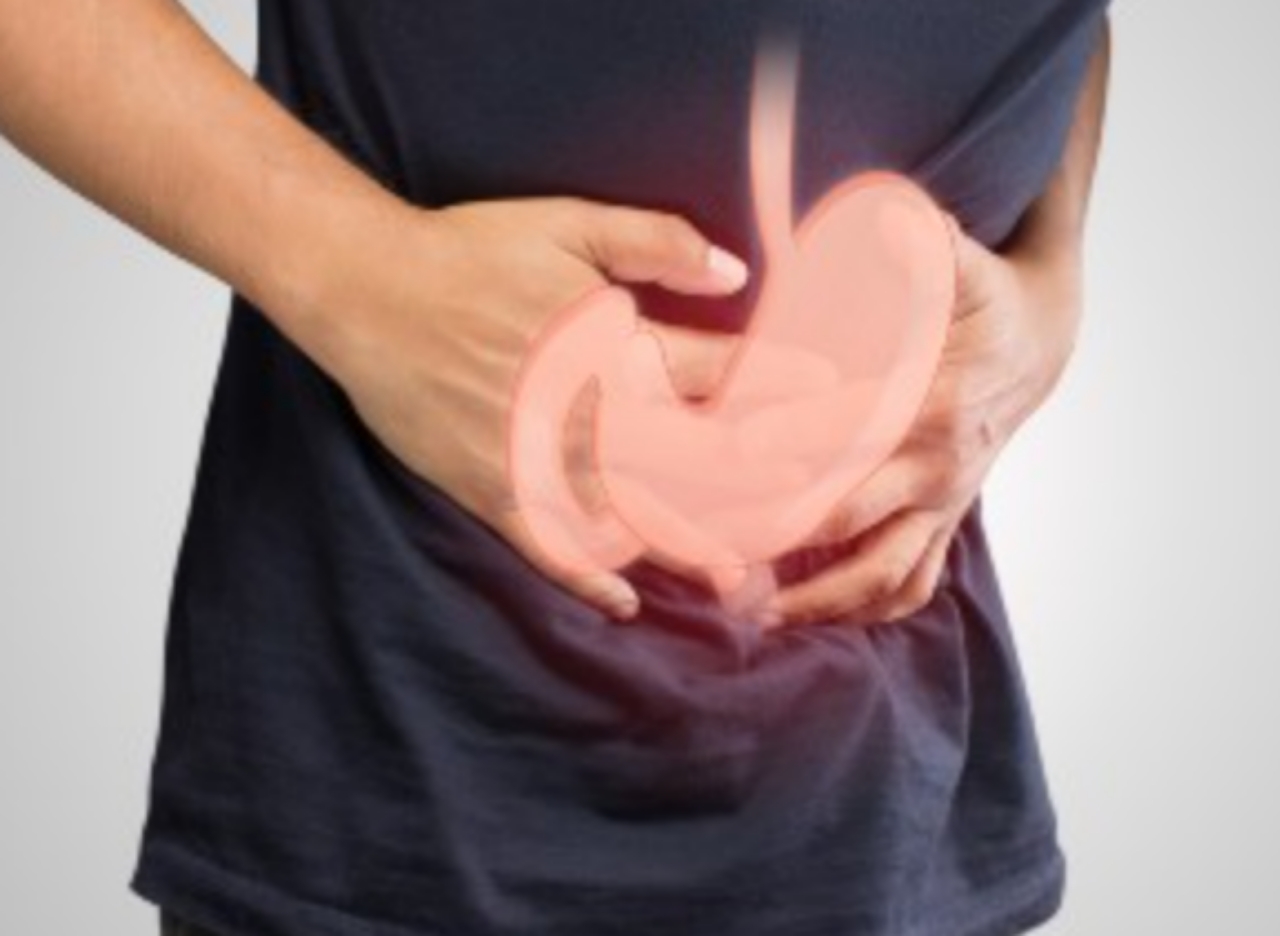
Gastritis can remain completely asymptomatic, in particular acute gastritis associated with infection with Helicobacter pylori. When gastritis is symptomatic, it most often causes the following symptoms:
- Pain in the upper abdomen region;
A feeling of embarrassment; - Nausea or vomiting, sometimes intermittent in chronic gastritis.
In some forms of gastritis, acid reflux and digestive disorders may appear.
Undetected and not adequately managed, acute gastritis can become chronic.
Then chronic gastritis can cause in the medium or long term various complications depending on the origin of the inflammation:
Bleeding from the gastric mucosa: this bleeding can be intermittent, small in volume or on the contrary persistent. Sometimes they go completely unnoticed or cause characteristic signs:
- The emission of black stools (melena);
- The presence of blood in vomiting;
- The presence of red blood in the stool;
- Anemia: The persistent bleeding associated with gastritis can cause anemia, which is iron deficiency. Anemia is manifested by fatigue, physical weakness and dizziness;
- Gastric ulcers which correspond to more or less deep wounds on the level of the lining of the stomach. These ulcers can lead to perforations of the stomach wall, causing inflammation of the abdominal cavity and infection of the peritoneal lining (peritonitis). The pain associated with the ulcer suddenly worsens and signs of infection appear;
- Narrowing of the stomach outlet and other irreversible damage to the stomach wall;
- Fluid retention and edema in the specific case of Ménétrier’s disease;
- More rarely, stomach cancer for gastritis associated with metaplasia.
Please note ! Ménétrier’s disease is a rare form of gastritis, seen when the stomach lining enlarges and contains fluid-filled cysts.
The cause of this pathology remains unknown, but specialists hypothesize an infection by Helicobacter pylori or a dysfunction of the immune system.
Diagnosis And Treatment Of Gastritis
What Diagnosis?

The diagnosis of gastritis can be made simply from suggestive symptoms described by the patient.
When gastritis is not detected because it is asymptomatic, the complications and consequences of gastritis can lead to the diagnosis.
In all cases, any abnormal digestive symptom that lasts more than a few days should lead to consult a doctor for medical advice.
The diagnosis of gastritis is based on an upper endoscopic examination, endoscopy or oesopipodenal endoscopy.
This examination consists of inserting through the patient’s mouth a flexible tube equipped with a micro-camera, which makes it possible to visualize different portions of the digestive system:
- The esophagus;
- The stomach;
- The duodenum.
During the examination, the doctor may take biopsies of the gastric mucosa. The cytopathological and histological analysis of the biopsies makes it possible to reveal:
- The possible presence of a pathogen, such as Helicobacter pylori;
- The inflammatory state of the gastric mucosa;
- The possible existence of characteristic lesions of the gastric mucosa (erosions, perforations, metaplasia, atrophy, etc.).
In the majority of cases, no further additional examination is necessary.
However, to determine the origin of gastritis more precisely, certain tests may be useful, for example a blood test for iron or vitamin B12, a blood count or the test for specific antibodies.
What Treatments?
The medical management of gastritis is adapted to their cause and has two objectives:
- Reduce inflammation of the gastric mucosa;
- Treat the cause of the inflammation.
In the majority of cases, the treatment combines: - Medicines to reduce the production of acid in the stomach:
- Histamine H2 receptor antagonists (anti-H2);
- Proton pump inhibitors;
- Antacid drugs which neutralize the acid produced by the stomach (alkaline substances which neutralize the stomach acid produced in excess by the stomach);
- Medicines to help the stomach lining to heal and prevent irritation (gastric bandages);
- Medicines to treat the cause of gastritis, for example antibiotics to eradicate Helicobacter pylori.
Medicines that irritate the stomach or exposure to irritants should be interrupted or stopped if possible to allow the gastric mucosa to regenerate.
For some forms of gastritis, there is currently no cure.
This is the case, for example, with gastritis following gastrectomy, atrophic gastritis, Ménétrier’s disease or even autoimmune gastritis.
